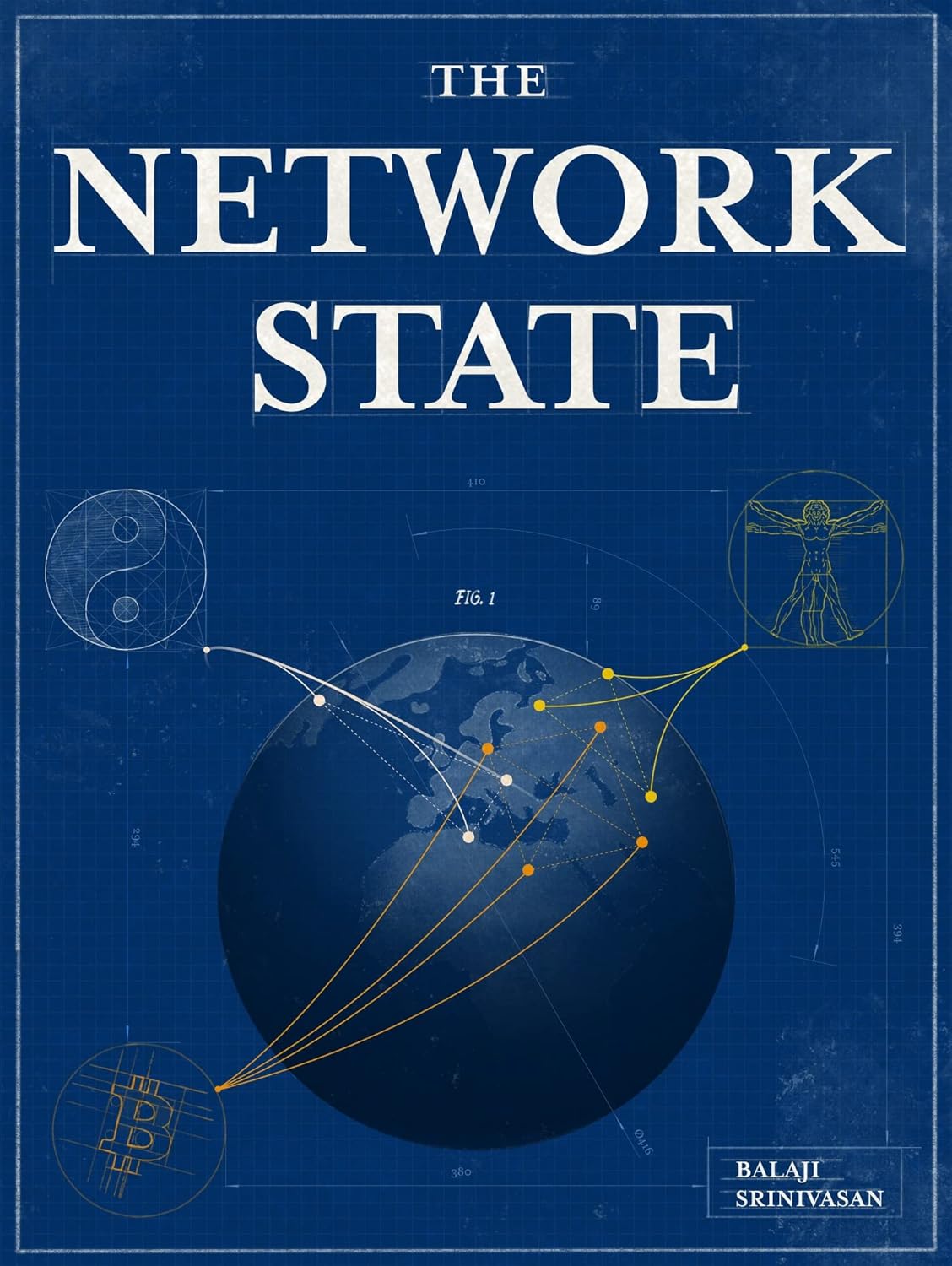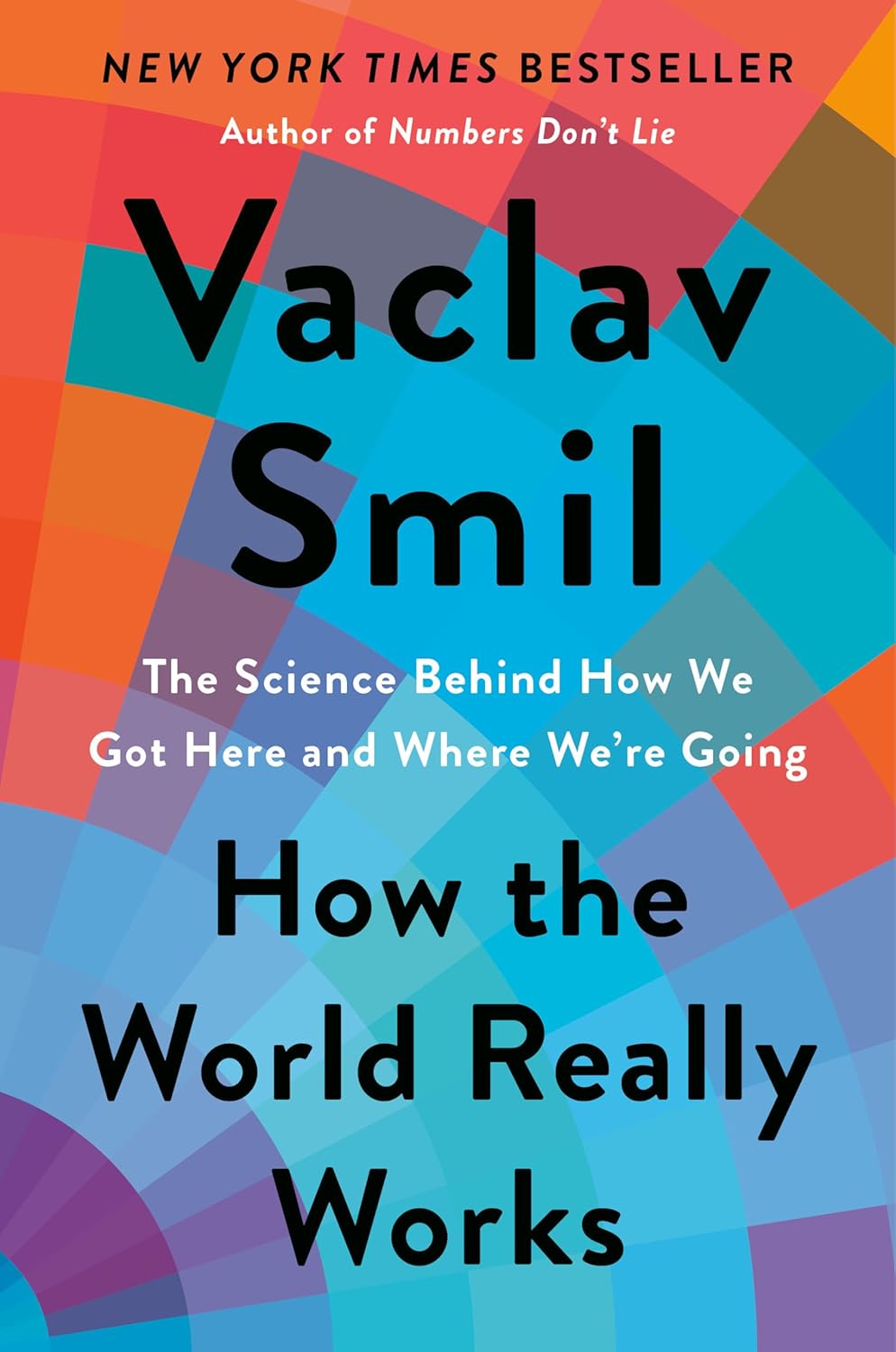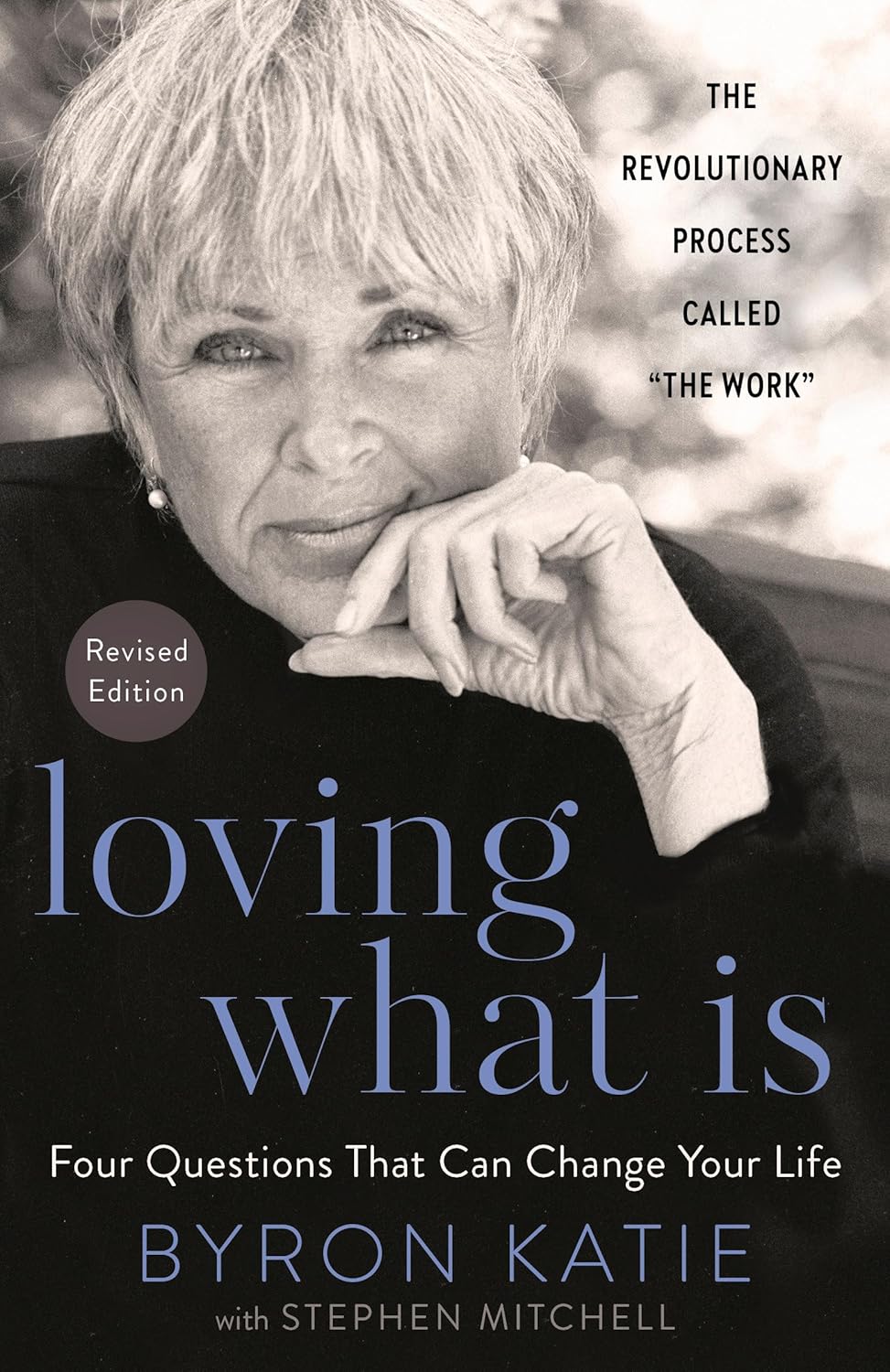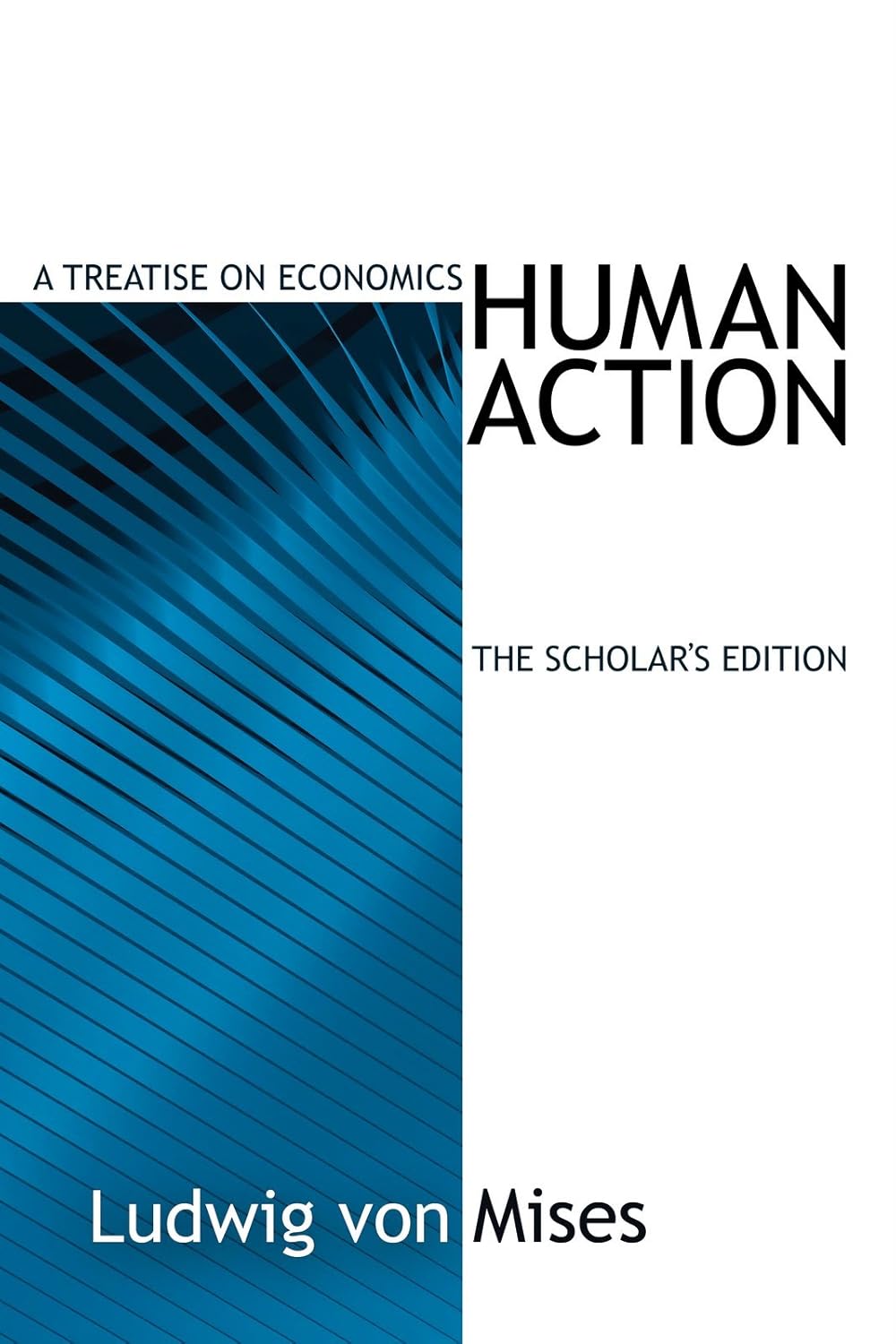The Network State by Balaji Srinivasan

-
In other words, the network state takes the most robust existing tech stack we have – namely, the suite of technologies built around the internet – and uses it to route around political roadblocks, without waiting for future physical innovation.
-
history is a cryptic epic of twisting trajectories. Cryptic, because the narrators are unreliable and often intentionally misleading. Epic, because the timescales are so long that you have to consciously sample beyond your own experience and beyond any human lifetime to see patterns. Twisting, because there are curves, cycles, collapses, and non-straightforward patterns. And trajectories, because history is ultimately about the time evolution of human beings, which maps to the physical idea of a dynamical system, of a set of particles progressing through time.
-
Put that together, and it wipes out both the base-rater’s view that today’s order will remain basically stable over the short-term, and the complementary view of a long-term “the arc of the moral universe is long, but it bends toward justice.” It also contests the idea that the fall of the bourgeoisie “and the victory of the proletariat are equally inevitable,” or that “no two countries on a Bitcoin standard will go to war with each other,” or even that technological progress has been rapid, so we can assume it will continue and society will not collapse. Those phrases come from different ideologies, but each of them verbally expresses the clean parabolic arc of the rock.
-
First, science progresses by taking phenomena formerly thought of as non-reproducible (and hence unpredictable) systems, isolating the key variables, and turning them into reproducible (and hence predictable) systems.
-
The macrohistorical log is largely siloed across different corporate servers, on the premises of Twitter and Facebook and Google. The posts are typically not digitally signed or cryptographically timestamped, so much of the content is (or could be) from bots rather than humans. Inconvenient digital history can be deleted by putting sufficient pressure on centralized social media companies or academic publishers, censoring true information in the name of taking down “disinformation,” as we’ve already seen. And the advent of AI allows highly realistic fakes of the past and present to be generated. If we’re not careful, we could drown in fake data.
-
The thing is, essentially all of human behavior has a digital component now. Every purchase and communication, every ride in an Uber, every swipe of a keycard, and every step with a Fitbit — all of that produces digital artifacts. So, in theory you could eventually download the public blockchain of a network state to replay the entire cryptographically verified history of a community.25 That’s the future of public records, a concept that is to the paper-based system of the legacy state what paper records were to oral records. It’s also a vision for what macrohistory will become. Not a scattered letter from an Abelard here and a stone tablet from an Egyptian there. But a full log, a cryptohistory. The unification of microhistory and macrohistory in one giant cryptographically verifiable dataset. We call this indelible, computable, digital, authenticatable history the ledger of record. This concept is foundational to the network state. And it can be used for good or ill. In decentralized form, the ledger of record allows an individual to resist the Stalinist rewriting of the past. It is the ultimate expression of the bottom-up view of history as what’s written to the ledger. But you can also imagine a bastardized form, where the cryptographic checks are removed, the read/write access is centralized, and the idea of a total digital history is used by a state to create an NSA/China-like system of inescapable, lifelong surveillance.
-
In the top-down view, history is written by the winners. It is about political power triumphing over technological truth. Why does power care about the past? Because the morality of society is derived from its history.
-
One of the most time-honored techniques to mobilize public animosity against the enemy and to justify military action is the atrocity story. This technique, says Professor Lasswell, has been used “with unvarying success in every conflict known to man.” The concept is as useful in peacetime as it is in war. Why? Because states get their people hyped up to fight wars by stressing the essentially defensive nature of what they are doing and the savage behavior of the enemy. But war is politics by other means, so politics is war by other means. Even in peacetime, the state is predicated on force. And this use of force requires justification. The atrocity story is the tool used to convince people that the use of state force is legitimate.
-
Somewhat toned-down versions of the atrocity story are the go-to technique used to justify expansions of political power. If we don’t force people to take off their shoes at the airport, people will die! If we don’t stop people from voluntarily taking experimental curative drugs, people will die! If we don’t set up a disinformation office to stop people from making hostile comments online, people will die! Indeed, almost everything in politics is backed by an atrocity story.28 There’s a sometimes real, sometimes fake, sometimes exaggerated Girardian founding murder (or at least founding injury) behind much of what the government does. Sometimes the atrocity story is framed in terms of terrorists, sometimes in terms of children…but the general concept is “something so bad happened, we must use (state) force to prevent it from happening again.” Often this completely ignores the death caused by that force itself.
-
we don’t care that much about the laws of Isaac Newton’s time, but we do care about Newton’s laws. In this model, all political ideologies have been around for all time — the only thing that changes is whether a given ideology is now technologically feasible as an organizing system for humanity. Thus: political fashions just come and go in cycles, so the absolute measure of societal progress is a culture’s level of technological advancement on something like the Kardashev scale.
-
From a statistician’s perspective, history is necessary for accurately computing the future. See any time series analysis or machine learning paper — or the Kalman filter, which makes this concept very explicit. To paraphrase Orwell, without a quantitatively accurate record of the past you cannot control the future, in the sense that your control theory literally won’t work.
-
The relevant bit here is that just because a business proposition didn’t work in the past doesn’t necessarily mean it won’t work today. The technological and social prerequisites may have dramatically changed, and doors previously closed may now have opened. Unlike the laws of physics, society is not time invariant.
-
That is, history is the analysis of the log files. Data exhaust model: history as the analysis of the log files. Here, we mean “log files” in the most general sense of everything society has written down or left behind; the documents, yes, but also the physical artifacts and genes and artwork, just like a log “file” can contain binary objects and not just plain text.
-
Here’s the key: is it true if others believe it to be true, or is it true regardless of what people believe? A political truth is true if everyone believes it to be true. Things like money, status, and borders are in this category. You can change these by rewriting facts in people’s brains. For example, the question of what a dollar is worth, who the president is, and where the border of a country is are all dependent on the ideas installed in people’s heads. If enough people change their minds, markets move, presidents change, and borders shift.37 Conversely, a technical truth is true even if no human believes it to be true. Facts in math, physics, and biochemistry are in this category. They exist independent of what’s in people’s brains. For example, what’s the value of π, the speed of light, or the diameter of a virus?
-
Once you reluctantly recognize that not every aspect of a sociopolitical order can be derived from an objective calculation, and that some things really do depend on an arbitrary consensus, you realize that we need to maintain a balance between political power and technological truth.39 Towards this end, the Chinese have a pithy saying: the backwards will be beaten. If you’re bad at technology, you’ll be beaten politically. Conversely, the Americans also have a saying: “you and what army?” It doesn’t matter how good you are as an individual technologist if you’re badly outnumbered politically. And if you’re unpopular enough, you won’t have the political power to build in the physical world.
-
Technological history is the history of what works; political history is the history of what works to retain power
-
Put another way, what’s the most powerful force on earth? In the 1800s, God. In the 1900s, the US military. And by the mid-2000s, encryption. Because as Assange put it, no amount of violence can solve certain kinds of math problems. So it doesn’t matter how many nuclear weapons you have; if property or information is secured by cryptography, the state can’t seize it without getting the solution to an equation.
-
The concept of the network state as a division of the world by people rather than by land is particularly important here, as network states are natively built for getting voluntary subscription revenue from people around the world. The diaspora is the state.
-
Sometimes the decapitation is forceful (Uber was an early target here) and sometimes it’s quasi-voluntary. Indeed, one thesis on why many of the major tech founders have stepped down as of mid-2022, other than Zuck, is that they don’t want to become personally demonized during the no-win antitrust process. It’s more explicit in China that this wasn’t a choice — Jack Ma is no longer in control of the company he founded, and many other Chinese founders have been similarly relieved of their duties. In other words, both the Chinese and American establishments have invented rationales to essentially seize previously founder-controlled companies.49 That is, whatever the surface justification, these are hostile takeovers of centralized tech companies by centralized states.
-
The concept is that you don’t want or need to start an entirely new religion to build a startup society, but you do need a moral innovation of some kind. If all you have to offer is a higher standard of living, people may come as consumers, but they won’t come for the right reasons. The consumer-citizen is coming to enjoy a great society, not to sacrifice to make a society great. They won’t understand the values that underpin your startup society’s valuation. And you likely won’t be able to build that high valuation or higher standard of living without a higher purpose, just as neither Apple nor America itself was initially built for money alone. You want to recruit producers, not consumers, and for that, you’ll need a purpose.
-
For the left-authoritarians among the blues, their primary Leviathan is the State, which is very real and can do violence against its/their enemies, as opposed to what they think of as an imaginary God. This is why State-worshippers mock the concept of “thoughts and prayers” in favor of “passing a law.” The State exists, after all, and can organize people to apply coercive force. But God’s vehicle, the church, no longer has enough belief behind it (in the West at least) to do the same. This is also why left-authoritarians tend to take for granted that all ills can be solved by “praying for relief” to the State, by forming some agency, by appropriating ever more money. Taxes are secular tithes, and the Gov-fearing man is like the God-fearing man — you simply cannot pay enough money and respect to the state, because as the DNC video says outright, “government is the one thing we all belong to.” It’s not about results, it’s about fealty.
-
It’s complicated. Even if their military did in some sense restrain the US from randomly blowing up the Middle East, it’s tough to argue that you’d still want the Soviet Union to still be around to limit US military intervention. Similarly, it’s hard to contend that the price of constraining China’s lawful evil ambitions in East Asia should be tolerance for America’s chaotic evil interventions in the Middle East, that defending against a potential Chinese drone armada should mean acceptance of endless destabilization by the US military. Ideally there’s a third way, a better choice - and that third way may simply be decentralized defense, where countries like Japan and Germany re-arm, rather than outsourcing everything to the US or folding to China. This has its own issues, of course — but if we’re moving back into the 1800s and 1700s, as per the Future is Our Past thesis, limited wars between gold-limited great powers are arguably preferable to gigantic global conflicts between unlimited superpowers.
-
Because BTC cannot be seized with one click by either the US or Chinese governments, it’s a symbol of international freedom and prosperity that is more powerful than any State.
-
The Sovereign Individual, written in 1999, is an incredible book that nailed many aspects of our digital future decades in advance, Bitcoin prime among them. We won’t recapitulate the whole thing here, but in short the thesis is that after many generations in which technology favored centralization (railroads, telegraph, radio, television, movies, mass production) since about 1950 it is now favoring decentralization (transistor, personal computer, internet, remote work, smartphone, cryptocurrency).
-
Hitherto, in the United States, our cheap and fertile lands have acted as an important safety-valve for the enterprise and discontent of our non-capitalist population. Every hired workman knows that if he chooses to use economy and industry in his calling, he may without great or insurmountable difficulty establish himself in independence on the public lands; and, in fact, a large proportion of our most energetic and intelligent mechanics do constantly seek these lands…
-
Nordhoff was right. The aggression of the Trade-Unions eventually led to the communist revolutions which killed tens of millions of people globally, led to “lasting disorders and attacks upon property”, and generally became the bane of the world. We can attribute some of this to the pause, to the closing of the frontier in 1890. That closing took away paths for ambitious men, and ensured that they couldn’t easily become founders on their own plot of land - they had to become union organizers, or revolutionaries, or demagogues of some kind. Without the frontier, it all became zero sum.
-
The political arbitrage of supporting those with low status and attacking those with high status is typically framed as a moral imperative, while the financial arbitrage of buying assets with low value and selling assets of high value is usually portrayed as a dispassionate mechanism for gaining financial capital. But recall that people do sometimes make moral arguments for buying low and selling high (“it helps markets become more efficient”). So you might invert the mood of the words on the other side too, and think of “afflicting the comfortable and comforting the afflicted” as a dispassionate mechanism for gaining political capital.
-
And if these startup societies are built out on the frontier, whether digital or physical, then the moral innovations are no longer imposed top-down, but adopted bottom-up by the people who opt in. That gives a better way to achieve the goals of ambitious young political reformers.
-
The frontier means the revolutionary is simultaneously less practically obstructed in their path to reform (because the ruling class can’t stop them from leaving for the frontier and taking unhappy citizens with them), but also more ethically constrained (because the revolutionary can’t simply impose their desired reforms by fiat, and must instead gain express consent by having people opt into their jurisdiction). These are, however, reasonable tradeoffs. So while the frontier is not a panacea, it is at least a pressure valve. That’s why reopening the frontier may be the most important meta-political thing we can do to reduce political conflict.
-
the frontier reduces political left/right issues because it reduces conflict over scarce resources,
-
Think about the following concepts: Christian King, Protestant Establishment, Republican Conservative, Soviet Nationalist, CCP Entrepreneur, or Woke Capitalist. Each of these compound nouns has within it a fusion of a once-left-associated concept and a right-associated one. That prefix is important: once-left-associated. At one point, Christians led a revolutionary movement against the Roman Empire, Protestants led a decentralist movement against the Catholic Church, Republicans led an abolitionist movement against the South, the Soviets led an internationalist movement against the nationalist White Russians, the CCP led a communist movement against the capitalists, and the Wokes led a critical movement against American institutions. But then they gained power, and with power came new habits. The revolutionary left that justified the rise to power morphed partially into an institutional right that justified the use of power. By its nature, a revolutionary group adopts leftist tactics to gain power, but once it wins, finds it needs to use rightist tactics to maintain power against a new crop of leftist insurgents.
-
Visualize the startup founder who just cannot adjust to a big company after an acquisition, or the writer who just refuses to hold back a story because of his editor’s political demurrals. Born revolutionaries of this stripe include Glenn Greenwald, Matt Taibbi, Jack Dorsey, Elon Musk, and many Substackers and tech founders. They just can’t bend to the establishment. But they also have real disagreements with each other, which is why they’re independents, and why they can’t mouth a party line. So the born revolutionary is really far more anti-establishment, and hence today anti-Democrat, than pro-Republican. Many of the most accomplished in tech and media share this characteristic – they don’t want to listen to authority because they think they know better, and in their case they often actually do. They’re fundamentally insubordinate and disobedient, rule breakers and novelty seekers, ideological rather than tribal, founders rather than followers — and thus sand in the gears of any establishment.
-
banking system), to the truly native digital version of money: cryptocurrency.
-
The Great Delay. The productivity will be here, but is delayed till the arrival of robotics. That is, for things we can do completely on the computer, productivity has measurably accelerated. It is 100X faster to email something than to mail it. But a slow human still needs to act on it. So, in this hypothesis, humans are now the limiting factor. Essentially, representing a complex project on disk in something like Google Docs may not be the productivity win we think it is. Humans still need to comprehend all those electronic documents to build the thing in real life. So the problem may be in the analog/digital interface. Do we need to actuate as fast as we compute? That would mean zero-delay robotic task completion will be the true productivity unlock. And that we haven’t gone full digital yet. So long as humans are still in the loop, we won’t get the full benefits of digital productivity.
-
If you run a two-sided marketplace, you’ll find contra Hayek that not all knowledge is local. For example, Sidecar lost to Uber because drivers set prices themselves, as opposed to setting them centrally. Hayekians would agree that Sidecar’s approach was optimal: drivers have local knowledge and central planning can’t work. But Uber’s central planning did work. They had a global view of supply & demand. And riders wanted speed, not price shopping.
-
Understanding the term “nation state” requires us to distinguish the nation (a group of people with common descent, history, culture, or language) from the state (their government). They are not the same. Even though “nation” is often conflated with “state,” the term “nation state” has two words for a reason. The first word (nation) has the same etymological root as “natality.” It once denoted a group of people with shared ancestry. The second word (state) refers to the entity that governs these people, that commands the police and the military, and that holds the monopoly of violence over the geographic area that the nation inhabits. In a sense, the nation and the state are as different as labor and management in a factory. The former are the masses and the latter are the elite.
-
In theory, the state was meant to be an innovation in violence reduction. You stay in your lane, I stay in mine. Clear sovereigns would keep domestic order, and the principle of national sovereignty would deter aggression from abroad. It didn’t entirely work out like that, of course; both intrastate and interstate conflict still occurred. But the abstraction of nation states may still have been preferable to the preceding era of fuzzy bordered empires and conflicting sovereigns.
-
We don’t typically think of mapmaking, printing, and shooting as novel activities, because the underlying technologies were invented so many generations ago. But they were each foundational to our modern concept of states with borders, where men with guns enforce written laws.
-
“God made men, but Sam Colt made them equal.” Feudalism was enforced by horseback-riding knights in shining armor with heavy swords; guns changed that. Others have written about the transition to the gun age, but in short, guns reduced the importance of physical inequality. Any man (or, eventually, woman) with a gun could kill any other man, even if the shooter was old and frail and the shootee was Sir Lancelot himself.
-
City states were defeated by nation states for a reason: they are physically centralized and have limited scale. So particularist city states populated by small ethnic groups get rolled up by universalist nation states (or empires) with many ethnic groups.161 That’s the reason a network state has a virtual capital rather than a physical one. Think of it as “remote-first,” but for a society. In a remote company, nothing officially exists unless it’s online, in an internal system of record like GitHub. Similarly, in a remote society, nothing officially exists unless it’s on-chain, in the blockchain system of record for that society. Put another way: if you don’t consciously set the capital of your network state to be virtual, it’ll be physical. And if it’s physical, the capital is centralized in one place, and can get invaded by a nation state. But if it’s instead a virtual capital, with a backend that is encrypted and on-chain, then - in the fullness of time - you can host an entire subset of the metaverse there, assuming blockspace increases as bandwidth did.
-
physical footprint. The approach of knitting together crowdfunded physical territory into a network archipelago addresses these issues. No virtual capital. Network states are not city states. City
-
Terra incognita returns. The network state system assumes many pieces of the internet will become invisible to other subnetworks. In particular, small network states may adopt invisibility as a strategy; you can’t hit what you can’t see.
-
Terra nullius returns. The network state system further assumes that unclaimed digital territory always exists in the form of new domain names, crypto usernames, plots of land in the metaverse, social media handles, and accounts on new services.
-
Domestic monopoly of root access. The governance network of a network state has root access to an administrative interface where law enforcement can flip digital switches as necessary to maintain or restore domestic order, just like the sysadmins of today’s tech companies.
-
Assumption: Digital Primary, Physical Secondary One point we touched on above, but that bears repeating, is that the network state system assumes the world has flipped to digital first: all nontrivial human-created events start in the cloud and then, if important, are “printed out” into the physical world.
-
The physical still exists, of course. There are still physical human beings, there are still physical plots of land, there are still physical rivers and mountains. And for some law enforcement and military functions a network state will need physical robots. But in a network state, everything physical is downstream of lines of code and enforced by cryptography, just as in a nation state, everything physical is downstream of pieces of paper and enforced by the police and military.
-
So, the network state system assumes that states like the USA and PRC will continue centralizing the power of their tech companies into one all-seeing dashboard, capable of surveilling, deplatforming, freezing, and sanctioning millions at once, or anyone at will. This digital power is currently exercised transnationally and without the consent of the governed. They have no true free choice of administrator. The network state system assumes that we can’t fully put this genie back in the bottle, but we can constrain it. Specifically, we grant that every legitimate state will need such power to govern its subnetwork, for the same reason any centralized service needs a system administrator with root access. But we also build decentralized services that do not have any single system administrator, and tools for the physical and digital exit of citizens.
-
On a free spot of land, you can have a nation without a governing state. Similarly, if we had a free region of the cloud, we could have a network without a governing startup. That’s what Satoshi did: he reopened the frontier, gave us a cloud without corporations. He showed us how to create digital networks without any single centralized authority. One extension of that gives us decentralized social networks, the basis for an open metaverse. So that’s one way to solve the problem: build digital land that isn’t controlled by any single startup. Anyone on that land could then freely choose between governance networks.
-
Without one or ideally both of these features (decentralized backend and decentralized login), a micronetwork might grow into a multinetwork, just like 0-person Facebook became 3 billion-person Facebook…but it wouldn’t have the legitimation of exit that enables a true network state. The millions of people on current platforms (and future ones) must be given the option to leave165 with all their digital valuables in order for their stay to be considered uncoerced.
-
Diplomatic recognition is as essential to a network state as exchange listing and wallet support is to a cryptocurrency. There are technical aspects to money, but it is also an inherently social phenomenon. Contrast this to an airplane, which will fly regardless of what anyone thinks.
-
But why? Why do we need the ability to found a network state? Why can’t we reform one of the perfectly good countries on the planet? First, these countries are not perfectly good. Just as it was easier to start a new digital currency than to reform the Fed, it may be easier to start a new country than to reform yours. Second, we want new countries for the same reason we want blank sheets of paper, fresh plots of land, or new startups: to begin anew without baggage from the old. And third, for certain kinds of technologies – particularly transformative biotech like life extension – we need new jurisdictions with fundamentally different levels of risk-tolerance, and clear-eyed consent by all who opt in.








